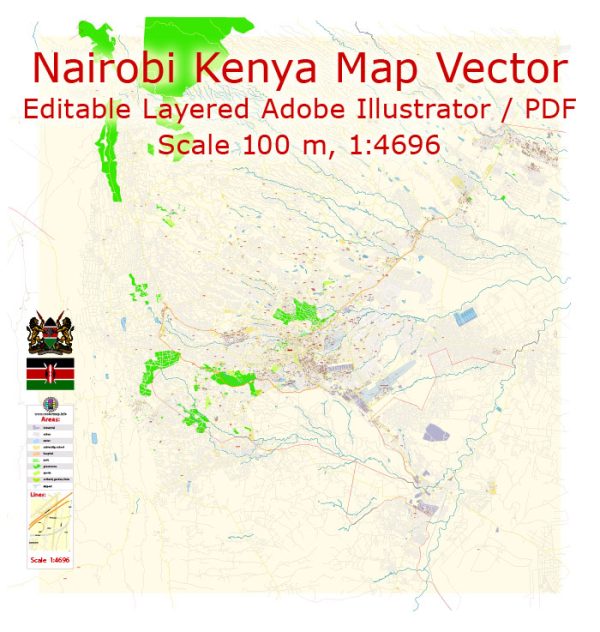Nairobi, the capital and largest city of Kenya, has a rich and fascinating history that has contributed to its status as a major African city. Here is a brief description of Nairobi’s history:
- Early Inhabitants: The Nairobi area was initially inhabited by the Maasai people, who were primarily pastoralists. The name “Nairobi” is believed to have originated from the Maasai phrase “Enkare Nairobi,” which means “cool water.”
- British Colonial Era: Nairobi’s modern history began in the late 19th century when it became a British colonial railway depot during the construction of the Kenya-Uganda Railway. It was established as a supply depot for the railway workers and was officially founded in 1899.
- Growth and Development: Nairobi’s strategic location along the railway line connecting Mombasa on the coast to the interior of Kenya led to its rapid growth. The city became a hub for European settlers and a center of commerce and administration during British colonial rule.
- Independence and Capital Status: Kenya gained independence from British colonial rule in 1963, and Nairobi was declared the capital of the newly independent nation. The city continued to grow and develop as the political, economic, and cultural center of Kenya.
- Political and Social Change: Nairobi has been at the center of Kenya’s political and social developments. It has witnessed significant events, including political protests, demonstrations, and the struggle for democracy.
- Urbanization and Infrastructure: Over the years, Nairobi has experienced rapid urbanization, leading to the development of modern infrastructure, such as roads, skyscrapers, and a well-established public transportation system. The city is known for its bustling markets, diverse population, and vibrant street life.
- Cultural Diversity: Nairobi is a melting pot of various ethnic groups, languages, and cultures. This diversity is reflected in the city’s vibrant arts, music, and culinary scenes.
- Economy: Nairobi is a major economic hub in East Africa and is home to a wide range of industries, including finance, technology, manufacturing, and agriculture. It hosts numerous international organizations and diplomatic missions, contributing to its global significance.
- Challenges: Like many rapidly growing cities, Nairobi faces challenges such as traffic congestion, informal settlements, and access to basic services for all residents. The city has been working on urban planning and infrastructure development to address these issues.
- Green Spaces and Wildlife: Nairobi is unique in that it boasts several green spaces and wildlife reserves within the city limits, such as Nairobi National Park, where visitors can see a variety of animals, including lions, giraffes, and rhinos.
Nairobi’s history is a story of transformation from a small railway depot to a bustling, cosmopolitan metropolis. The city continues to evolve and play a crucial role in Kenya’s development and on the African continent as a whole.


 Author: Kirill Shrayber, Ph.D. FRGS
Author: Kirill Shrayber, Ph.D. FRGS